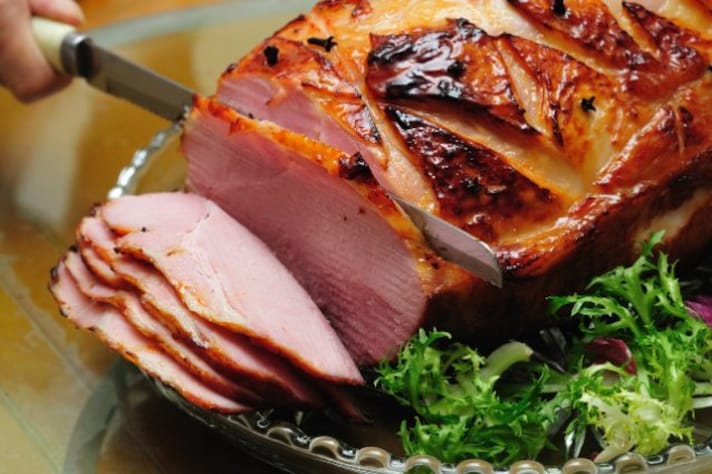The Reason Why You Should Never Freeze Ham (Whole and Sliced)
Freezing ham can degrade its texture, flavor, and quality due to ice crystal formation and fat oxidation. Raw ham risks bacterial growth, while cooked ham becomes mushy and loses flavor upon thawing. Pre-packaged supermarket ham also suffers from these issues, making fresh consumption the best option for enjoying ham.

Ham is a versatile and popular meat choice, enjoyed across various cuisines and cooking styles. From holiday feasts to everyday sandwiches, ham plays a central role in many diets. However, when it comes to preserving this beloved meat, freezing may not always be the best option.
What Happens When You Freeze Ham?
Freezing ham can lead to several undesirable changes in texture, flavor, and overall quality. When ham is frozen, the water inside its muscle fibers turns into ice crystals. These crystals can rupture the fibers, leading to a mushier texture once the ham is thawed. This textural change is more pronounced in cooked ham, where the delicate balance of moisture and tenderness is easily disrupted.
Ham contains fats that can oxidize in the freezer, leading to rancid flavors. Additionally, the natural juices of the ham are often lost during the freezing and thawing process, diluting its rich, savory taste. Freezing can cause the salt within the ham to become more concentrated in certain areas, resulting in uneven seasoning and an overly salty taste upon thawing.

Why You Shouldn’t Freeze Raw Ham
Freezing raw ham is particularly problematic due to its high moisture content. Raw ham already contains bacteria that can survive the freezing process, and improper handling during thawing can increase the risk of bacterial growth and foodborne illness. Moreover, the texture of raw ham, especially if it's a finer cut like prosciutto, is highly susceptible to damage from ice crystals, compromising its quality significantly.
The Issue with Freezing Cooked Ham
Cooked ham doesn’t fare much better in the freezer. The cooking process already alters the protein structure of the meat, making it more vulnerable to textural changes when frozen. When thawed, cooked ham often becomes watery and loses its appealing texture and flavor, which can be especially disappointing if the ham was originally part of a special meal.

Supermarket Ham: A Freezing Concern
Supermarket ham often comes pre-packaged and sometimes pre-cooked, with added preservatives and flavorings. Freezing these hams can exacerbate the loss of flavor and texture due to the additional processing they have undergone. Moreover, packaging can trap moisture against the surface of the ham, leading to ice formation that further damages the meat’s structure upon freezing and thawing.
;Resize,width=767;)



